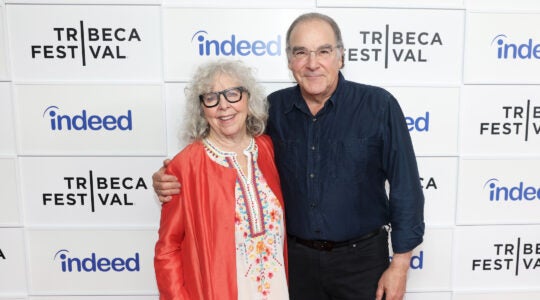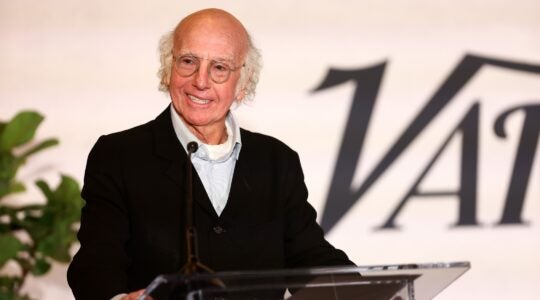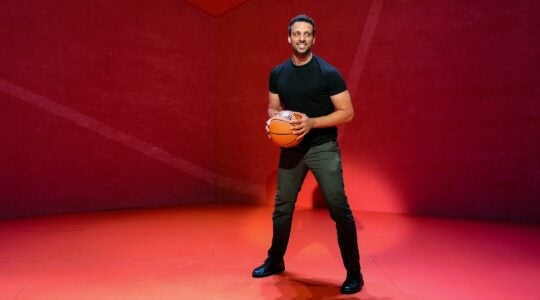NEW YORK (JTA) — Cleveland has gained an unlikely new patron of the arts: the local Jewish federation.
As part of a new project to help showcase Israeli artists, the Jewish Federation of Cleveland is helping to facilitate Israeli performances at some of the city’s major museums, concert halls and theaters. The program launched earlier this fall aims not just to boost Israel but the Israeli arts with the message that Israeli culture isn’t just for the JCC anymore.
“The mission is to project Israel as a source of world-class art and culture,” said Erica Hartman-Horovitz, an art appraiser who co-chairs the program, the Cleveland Israel Arts Connection. “When most people think of Israel they’re thinking of the conflict, maybe the incredible efforts that Israel goes through to survive. We want to illustrate the Israel arts and culture world as something that is more than that for those who might not be interested in Israel for other reasons.”
Made up of volunteers from the Cleveland arts, performance, music and literary communities, the program’s committee has helped bring Ladino singer Yasmin Levy to the Cleveland Museum of Art; brought the Alon Yavnai jazz quintet to Severance Hall, the home of the Cleveland Orchestra; supported a sold-out performance of “My Name is Asher Lev” at the Cleveland Play House; and sponsored talks from Israeli novelist Amos Oz at Oberlin College and Case Western Reserve University.
In March, the Cleveland International Film Festival will feature films from Israel.
The program to boost Israel is unusual both for its partnerships with non-Jewish institutions and its ambition to bring Israeli culture to a city with a relatively modest Jewish population of about 80,000 and few Israelis.
“You don’t need to do this in New York because New York — and probably L.A., Washington and Miami — has regular presentations, and because you have a large Jewish and Israeli population and these things can play there successfully even competing against other cultural options,” said Stephen Hoffman, CEO of the Cleveland Jewish federation. “But once you leave the largest Jewish population centers, you have to work at it. Some of these performers might come to Cleveland anyway, some might not, but some need more help.”
The help includes funding of $50,000 in corporate and private donations, as well as manpower help from the federation. Among the components of the program is a part-time Israeli scout for talent who comes to Cleveland every couple of months to suggest collaborations with particular artists or groups.
Meanwhile, non-Jewish venues in Cleveland are turning to the committee for help.
Pam Young, the executive director of DANCECleveland, said she had wanted to bring the Israeli Inbal Pinto & Avshalom Pollak Dance Company to the city a few years ago to perform its new work at the time, “Oyster,” but to do so would have been cost prohibitive.
When Young heard recently that the dance company would be reprising “Oyster” during a U.S. tour, she turned to the federation and the shidduch was made. In late January, the Israeli company will perform for two days at PlayhouseSquare, the country’s second-largest performing arts center after New York’s Lincoln Center.
“Federation leadership was essential,” Young told JTA. “It gave us confidence to move forward with the project.”
She said performances like these are a great way for non-Jews to learn about Israel.
“The arts transcend a lot of things: They transcend age, race, they transcend stereotypes,” Young said. “Israeli artists aren’t always making art about Israeli experiences or Jewish experiences, but they’re making work, interesting work.”
Attempts to bring Israeli culture to secular venues haven’t always gone smoothly. In 2009, the Toronto International Film Festival came under fire for including Israeli movies. But in Cleveland, organizers say they haven’t encountered such opposition.
Young said bringing Israeli artists to town may be heartwarming for Jews, but it also gives non-Jews an opportunity to enjoy great art — it just happens to be from Israel.
“There are going to be non-Jews in the audience,” she said of the upcoming dance performance. “They’ll be the first ones on their feet.”
JTA has documented Jewish history in real-time for over a century. Keep our journalism strong by joining us in supporting independent, award-winning reporting.





